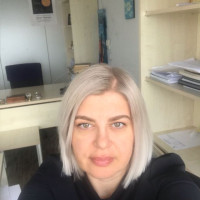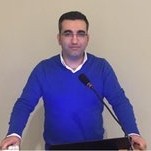Araştırma Makalesi
Issue Reviewers

Bilkent Üniversitesi İktisadi, İdari ve Sosyal Bilimler Fakültesi Uluslararası İlişkiler Bölümü’ndeki lisans öğrenimini 1998’de tamamladıktan sonra, 1999’da, aynı üniversitenin Sosyal Bilimler Enstitüsü’nün Uluslararası İlişkiler Ana Bilim Dalı’ndan, The Contribution of The International Court of Justice to The Continental Shelf Disputes in The Mediterranean Sea başlıklı tezi ile Yüksek Lisans, Marmara Üniversitesi, Sosyal Bilimler Enstitüsü, Siyaset Bilimi ve Uluslararası İlişkiler Anabilim Dalı’ndan, 2011 yılında, Bir Göç Sisteminin Anatomisi: Türkiye-Rusya Örneği başlıklı tezi ile Doktora derecelerini almıştır.
Çalışmaları, uluslararası göç ve göç politikaları alanlarında yoğunlaşmıştır.
Halen, Doktor Öğretim Üyesi olarak, İstanbul Ticaret Üniversitesi, İnsan ve Toplum Bilimleri Fakültesi, Siyaset Bilimi ve Uluslararası İlişkiler Bölümü’nde çalışmaktadır.


Assoc. Prof. Taha Egri is currentlyis the Head of the Department of Economics at Kırklareli University, Turkey. He completed his BA at Bogazici University, Turkey, and obtained his MA and PhD degrees at Istanbul University, Turkey. He was a visiting scholar at George Mason University, USA, between 2014 and 2016. His primary research areas are institutional economics and international political economy. He is currently focusing on MENA countries' economic policies, military-economic relations and Islamic economics. He is the editor of two peer-reviewed journals: the Journal of Humanity and Society and the Turkish Journal of Islamic Economics.
UMUT UZER is an Associate Professor at the Department of Sociology at Istanbul Technical University. He is the author of two books, namely An Intellectual History of Turkish Nationalism (2016) and Identity and Turkish Foreign Policy (2011) and has published “Conservative Narrative: Contemporary Neo-Ottomanist Approaches in Turkish Politics,” Middle East Critique 29 (3) (2020), as well as other articles on Palestine and Türkiye, Israeli-Turkish relations, Turkish nationalism and neo-Ottomanism in Middle East Policy, Israel Studies Review, Israel Affairs, Turkish Studies, Journalism, Journal of the Middle East and Africa and Journal of Muslim Minority Affairs.
Dr. Uzer was a postdoctoral fellow at Harvard University and has taught at Smith College, University of Utah and Boğaziçi University. For his doctoral studies, he attended University of Virginia, where he wrote his Ph.D. dissertation with William Quandt.
Aim & Scope
Istanbul Ticaret University Journal of Foreign Trade aims to develop and strengthen academic dialogue and to create an environment of constructive criticism that we need at the academic level with the function of including scientific studies in the academic dialogue process before publication.
Studies in the fields of economics, business administration and banking / finance, especially international trade, international finance and international marketing, can be sent to Istanbul Ticaret University Journal of Foreign Trade for publication.
Author Guidelines
- Manuscripts can be submitted in MS Word format in English or Turkish.
- For Turkish papers, the Turkish abstract should be submitted first, then the English abstract/abstract, for English papers, the English abstract/abstract should be submitted first.
English abstract/abstract should be followed by Turkish abstract.
- The number of keywords is limited to a minimum of 3 and a maximum of 5 words.
- At least 2 separate keywords should be written for the Abstract and Abstract section. Turkish and English keywords
number should be in equal and bear order.
- The text section should be written in New Times Roman 11 font size and single line spacing.
- The title of the article should be in 15 pt. and not more than 15 words, in capital letters and bold / bold
format and should be written "centred".
- For articles derived from a thesis, a footnote must be added to the title of the article to indicate from which thesis the article is derived.
should be indicated as derived.
- The maximum word count for submitted articles is 10,000 and the maximum page count is 35.
- According to the page layout, the article should be written by leaving 2.5 cm space from top, bottom, right and left.
- Author names should be written at the bottom of the article title. A separate line should be used for each author name. ORCID Number should be given next to the author name. Titles should not be written.
- Title, university, faculty and e-mail address information should be listed downwards by adding a footnote.
- Abstracts should be written in Turkish and English with a minimum of 100 and a maximum of 130 words. Before the English abstract, the translation of the article name should be placed in bold and capital letters in 12 point size, centred on the page. Abstracts should be written in 11 pt. Abstracts should include the purpose, scope, method, findings and conclusion of the article.
- Texts should be written justified.
- Tables, figures and charts should not be divided in page transitions. They should be positioned to be given as a whole.
- In the header entries (except for the first page), "author names on odd pages" and "article name and year on even pages" will be written. This process will be carried out by the editor.
- The manuscripts received by the editors are sent anonymously to two referees for evaluation. In line with the opinions of the referees, it is decided to publish the article directly or partially corrected and the result is notified to the author(s). Corrected manuscripts must be returned to the editorial team within one week at the latest. Manuscripts that are not returned within the specified period will not be published.
- The bibliography content should be written in 11 pt.
- Since our journal is a refereed journal, there is a Referee Evaluation System.
- References should be cited according to APA format (bracketed system). The order should be as follows; author's surname and date (Kaplan, 2007). If more than one work of the same author belonging to the same year is used; (Klaus, 2008a), (Klaus, 2008b) should be categorised.
- All sources used in the study should be included in detail in the bibliography section.
Ethical Principles and Publication Policy
Articles submitted to our journal are firstly reviewed by the Editor. After the conformity in terms of spelling rules, they are scanned in various plagiarism programmes. If there are problematic "excessive direct quotations" in the article, the authors are corrected again and taken into the referee process. Articles with a high similarity rate (more than 20%) are rejected by the Editor. In the refereeing process, the "anonymous author anonymous referee" rule is applied. Articles are sent to at least 2 referees who are experts in their fields. If the opinions of two referees differ, the opinion of the editor or third referee is taken.
Price Policy
Hiçbir ad altında yazar veya kurumundan ücret alınmaz.





